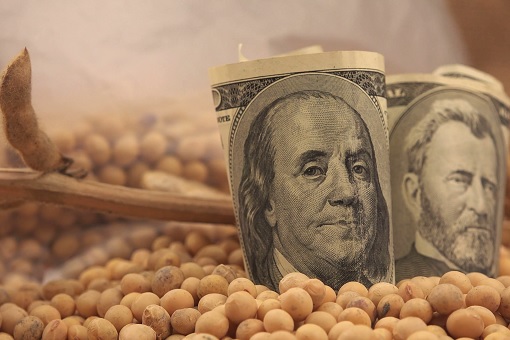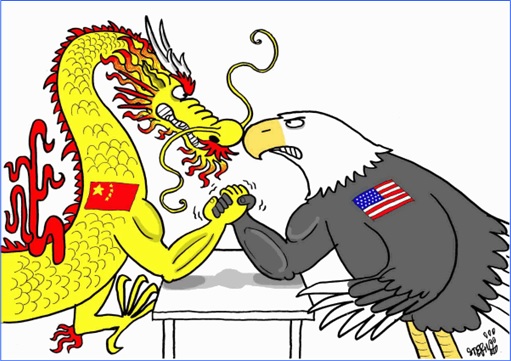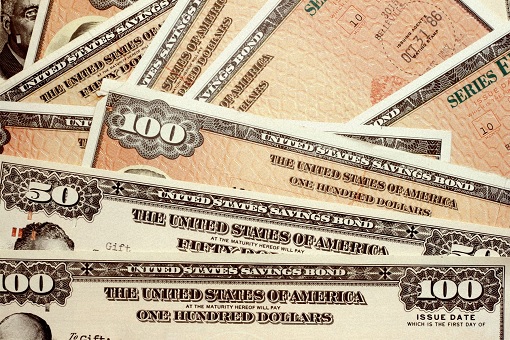Less than 24 hours after President Donald Trump unveiled a list of Chinese imports that his administration aims to target, China strikes back with its own tariffs on U.S. products. Trump’s US$50 billion tariffs in Chinese imports cover a staggering 1,300 categories of products, arguably the most aggressive trade war against the Chinese.
The slap of 25% levies on Made-in-China products includes medicines, medical equipment, dishwashers, televisions and automobile parts. However, Trump was smart enough not to include essential consumer products such as clothing, mobile phones, furniture and shoes to prevent backlash from his own fellow American consumers.
While Washington’s proposed tariffs include products used for robotics, information technology, communication technology and aerospace, Beijing’s 25% tariffs on 106 U.S. products – matching Trump’s US$50 billion – were designed to specifically target America agriculture sector, including soybeans, corn, sorghum, wheat, beef, orange juice, whiskies, tobacco and others.

American cars, chemical products and aircrafts are also in the Chinese list. Like a broken record, Cui Tiankai, China’s Ambassador to Washington, explained why his country retaliates with equal ferocity – “We certainly don’t want to have any trade war with anybody, but people have to understand who started all this. We’ll, in accordance with Chinese laws, take measures to fight back.”
Interestingly, President Trump tweeted and explained there isn’t any trade war at all. His tweet reads – “We are not in a trade war with China, that war was lost many years ago by the foolish, or incompetent, people who represented the U.S. Now we have a Trade Deficit of $500 Billion a year, with Intellectual Property Theft of another $300 Billion. We cannot let this continue!”
Commerce Secretary Wilbur Ross also tried to play down China’s new tariffs. He told CNBC that the Chinese’s tariffs “amount to about three-tenths of a percent (0.3%) of our GDP. So, it’s hardly a life-threatening activity.” But likewise, the U.S. latest tariffs on China’s exports account for only about 0.4% of China’s 2017 GDP.
We are not in a trade war with China, that war was lost many years ago by the foolish, or incompetent, people who represented the U.S. Now we have a Trade Deficit of $500 Billion a year, with Intellectual Property Theft of another $300 Billion. We cannot let this continue!
— Donald J. Trump (@realDonaldTrump) 4 April 2018
Like Trump, obviously Ross is trying to calm the financial markets about the trade war between the world’s two largest economies. If the Dow Jones Industrial Average (DJIA) is any indicator, the stock markets interpret Trump’s tweet as his reluctance to engage China in a full-blown trade war. The DJIA closed 230.94 points higher, rallying more than 700 points from its session low.
Here’s another sign that both nations aren’t really that serious about the trade war. Beijing did not specify when the new tariffs would be imposed. Likewise, Washington’s tariffs on the Chinese products will not go into effect immediately. Heck, it may never be imposed if the two sides eventually agree on a deal where Trump gets to declare victory while China gets to keep its giant surplus.
The Chinese said the next step is to talk and de-escalate the tension. In fact, U.S. companies have until May 22 to raise objections, and a public hearing on the issue is scheduled for May 15 in Washington. The simple fact that Trump refuses to call this tension a trade war is the clearest sign the U.S. president doesn’t want to fight China anymore than the Chinese.

It appears that Beijing has decided not to waste time in the poker game and pressed the “hot button” to send a firm message to Washington. This is not a contest about who can punish the most number of products. It’s about taxing the right products to inflict the maximum damage. And as far as the Chinese is concerned, the target is clear – American farmers.
You don’t need a rocket scientist to tell that Beijing’s decision to target U.S. soybeans in its new tariffs is a brilliant political manoeuvre designed to hit President Donald Trump’s support base. The game was to attack the American farmers, whom had supported Trump in the 2016 Presidential Election, and then the same farmers will put some pressure on Trump.
Sure, China’s economy could also suffer as its own industry – feed, oil, and food – will be penalized too. But that’s the calculated damage that the Chinese is willing to take in order to tell the tough U.S. president that he has picked up the wrong guy to bully. By aiming its cannon at soybeans, China is showing its negotiation cards.

Trump’s proclamation that this isn’t a trade war between the U.S. and China is a sign of his weakness. He isn’t ready for a trade war. This doesn’t look like the same Trump who had threatened to wipe out North Korea last year. He should have pushed ahead with his threat with tougher message to the Chinese, whom he had accused of unfair trade and intellectual property theft.
However, China should not pop champagne yet as it could be a deliberate move from Trump to see what cards Beijing is willing to play. Even if the U.S. president chickens out eventually, that doesn’t mean he won’t come back to stab the Chinese again next year, after the November U.S. midterm election is over. To engage China in a full-blown trade war before the election is a suicidal mission.
Of course, China knew that and hasn’t revealed its big gun yet. Although the China’s government has repeatedly said it is not considering reducing or unloading its U.S. Treasury bond holdings, why should anybody believe the Chinese are dumb enough to admit they have such plan in the first place? China possesses US$1.17 trillion in Treasury bonds, and that’s a huge gun.

Perhaps Trump should realize that without the so-called trade deficit of US$500 billion (the actual number is US$375 billion in 2017), China would not have the money to buy U.S. debt papers, which in turned enable Americans to spend more than what they earn. The Chinese also helps supporting the US dollar by purchasing the U.S. Treasury bonds.
Other Articles That May Interest You …
- Forget China – U.S. President VS World’s Richest Man Could Damage The Stock Markets
- American Trash Talk – After Trade War, Now U.S. Hopes Can Still Dump “Garbage” In China
- You Want Trade War, Here’s The War!! – China Strikes Back, And It’s Just The Appetizer
- A Boost To China Economic Powerhouse – Loyalty For Local Brands Skyrockets
- Tariffs On Solar & Washing Machines – Why Trump’s Trade War Is Smart & Dumb
- China Reveals Strategy To Fight U.S. Trade War – Stop Buying American Debt
- U.S. Household Debt Hits Record $12.84 Trillion – China Top Owner Of I.O.U. Papers
- A US-China Trade War About To Happen – Here’s Why The Yankees Can’t Win
- U.S. Debt – How Much Does Each American Owe?

|
|
April 5th, 2018 by financetwitter
|


|

|

|

|

|

|




























Comments
Add your comment now.
Leave a Reply